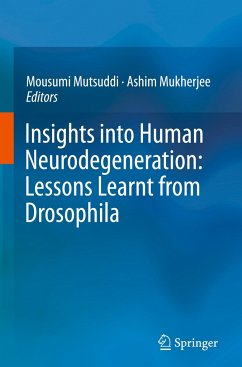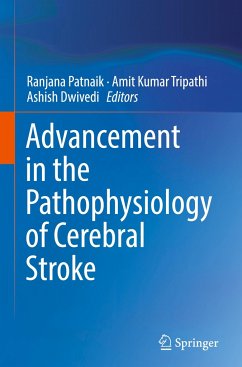
Neural Regulation of Metabolism

PAYBACK Punkte
57 °P sammeln!
This book systemically describes the mechanisms underlying the neural regulation of metabolism. Metabolic diseases, including obesity and its associated conditions, currently affect more than 500 million people worldwide. Recent research has shown that the neural regulation of metabolism is a central mechanism that controls metabolic status physiologically and pathophysiologically.The book first introduces the latest studies on the neural and cellular mechanisms of hypothalamic neurons, hypothalamic glial cells, neural circuitries, cellular signaling pathways, and synaptic plasticity in the co...
This book systemically describes the mechanisms underlying the neural regulation of metabolism. Metabolic diseases, including obesity and its associated conditions, currently affect more than 500 million people worldwide. Recent research has shown that the neural regulation of metabolism is a central mechanism that controls metabolic status physiologically and pathophysiologically.
The book first introduces the latest studies on the neural and cellular mechanisms of hypothalamic neurons, hypothalamic glial cells, neural circuitries, cellular signaling pathways, and synaptic plasticity in the control of appetite, body weight, feeding-related behaviors and metabolic disorders. It then summarizes the humoral mechanisms by which critical adipocyte-derived hormones and lipoprotein lipase regulate lipid and glucose metabolism, and examines the role of the hypothalamus-sympathetic nerve, a critical nerve pathway from CNS to peripheral nervous system (PNS), in the regulation of metabolism in multiple tissues/organs. Furthermore, the book discusses the functions of adipose tissue in energy metabolism. Lastly, it explores dietary interventions to treat neural diseases and some of the emerging technologies used to study the neural regulation of metabolism. Presenting cutting-edge developments in the neural regulation of metabolism, the book is a valuable reference resource for graduate students and researchers in the field of neuroscience and metabolism.
The book first introduces the latest studies on the neural and cellular mechanisms of hypothalamic neurons, hypothalamic glial cells, neural circuitries, cellular signaling pathways, and synaptic plasticity in the control of appetite, body weight, feeding-related behaviors and metabolic disorders. It then summarizes the humoral mechanisms by which critical adipocyte-derived hormones and lipoprotein lipase regulate lipid and glucose metabolism, and examines the role of the hypothalamus-sympathetic nerve, a critical nerve pathway from CNS to peripheral nervous system (PNS), in the regulation of metabolism in multiple tissues/organs. Furthermore, the book discusses the functions of adipose tissue in energy metabolism. Lastly, it explores dietary interventions to treat neural diseases and some of the emerging technologies used to study the neural regulation of metabolism. Presenting cutting-edge developments in the neural regulation of metabolism, the book is a valuable reference resource for graduate students and researchers in the field of neuroscience and metabolism.














